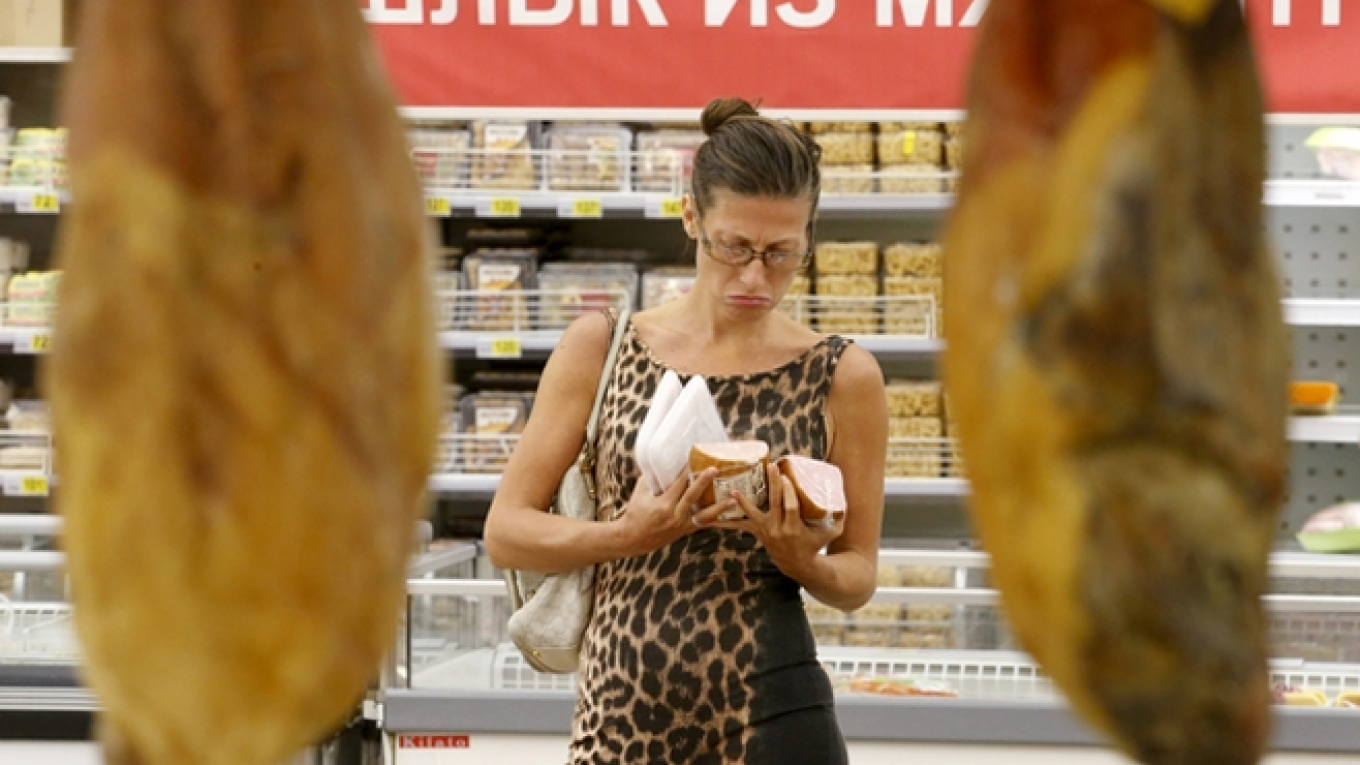It would seem that the whole agenda of "import substitution," the current mantra of the Russian authorities, which is being pushed across industries and goods markets, has no political future.
The practice leaves consumers with fewer goods, while the remaining products are lower in quality and more expensive than before — regardless of the market sector concerned.
Whether simple products such as cheese or wine, or complex ones such as medicines or software, the results of import bans are always the same: the consumer pays more for a smaller quantity of goods.
Of course, some people stand to gain from protectionist measures: the owners of firms whose products were in competition with foreign suppliers prior to the ban.
But because the losers — in this case, consumers — far outnumber the winners — a handful of business owners — the practice of "import substitution" should not seem politically attractive.
However, leaders have erected trade barriers in many countries throughout history, indicating that other factors must make them politically attractive.
What are the factors that compel national leaders to introduce measures like import substitution?
The truth is that while millions of consumers collectively pay an enormous price for import barriers, each individual pays relatively little.
For example, if the price of cheese increases from 200 rubles to 220 rubles per kilogram, the average Russian family might lose about 300-400 rubles per year, whereas the manufacturer, now freed from competition from foreign products, pockets millions of additional rubles.
Of course, consumers lose more overall than manufacturers gain. Why? Because protected domestic producers deliberately produce less than the market demands in order to keep prices high.
And the fact that millions of consumers lose so little individually while a few businesspeople gain so much means citizens are not in a strong position to demand a better economic policy from their leaders.
The most obvious example is the textbook case of Russia's Agriculture Minister Alexander Tkachyov — whose family owns large agricultural holdings — campaigning in favor of import substitutions that would boost his personal profits.
Numerous other examples appear daily in newspaper reports of less prominent individuals in various sectors arguing for import barriers in a transparent attempt to fleece domestic consumers.
What can be done? In Russia, under the current economic and political circumstances, probably nothing.
However, the knowledge that "import substitution" is really just a way for a few dozen wealthy individuals to get even richer by charging millions of citizens more money for the very same products might eventually lead to a desire for change.
In the end, many millions of Russians now have a lower standard of living thanks to "import substitution."
Konstantin Sonin, a columnist for Vedomosti, is professor of economics at the University of Chicago and the Higher School of Economics in Moscow.
A Message from The Moscow Times:
Dear readers,
We are facing unprecedented challenges. Russia's Prosecutor General's Office has designated The Moscow Times as an "undesirable" organization, criminalizing our work and putting our staff at risk of prosecution. This follows our earlier unjust labeling as a "foreign agent."
These actions are direct attempts to silence independent journalism in Russia. The authorities claim our work "discredits the decisions of the Russian leadership." We see things differently: we strive to provide accurate, unbiased reporting on Russia.
We, the journalists of The Moscow Times, refuse to be silenced. But to continue our work, we need your help.
Your support, no matter how small, makes a world of difference. If you can, please support us monthly starting from just $2. It's quick to set up, and every contribution makes a significant impact.
By supporting The Moscow Times, you're defending open, independent journalism in the face of repression. Thank you for standing with us.
Remind me later.


